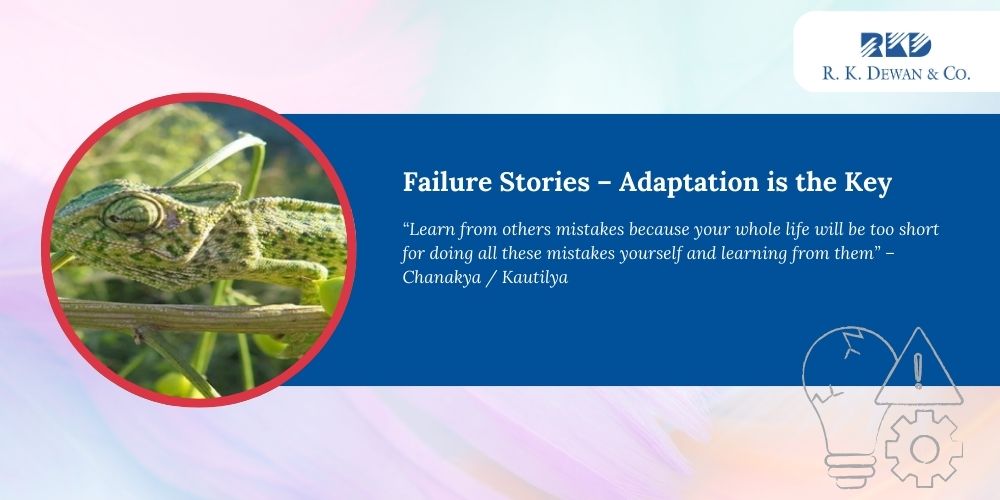“Learn from others mistakes because your whole life will be too short for doing all these mistakes yourself and learning from them” – Chanakya / Kautilya
In the quest for success, we often find ourselves engrossed in tales of triumph, stories that exude inspiration and motivation. However, the value of failure stories should not be underestimated. These accounts of missteps, miscalculations, and unfortunate circumstances carry with them invaluable lessons. By delving into the narratives of ventures that faltered, we can uncover the complexities of decision-making, the pitfalls of overconfidence, and the significance of adaptability.
In this article, we’ll explore a prominent example of a company’s downfall, peeling back the layers of a tale not typically recounted.
In the grand mobile communication empire of approx. 600 Billion USD, a once-dominant player held court, not with a crown, but with a physical keyboard QWERTY. This company, let’s call it “Monarch,” rose to power with a ground-breaking device that offered unparalleled security and communication speed, becoming the preferred tool of high-powered professionals. Its loyal subjects, armed with the satisfying click of physical keys and the constant hum of instant messages, felt empowered and invincible.
Monarch’s ascent was swift and impressive. They built empires of profit, protected by a moat of loyal subscribers and an impenetrable network. Messages flowed freely, carrying critical information and fostering instant connection. The company, basking in its success, scoffed at rivals who dared venture into the realm of touchscreens and app stores.
But empires, even digital ones, are susceptible to hubris. Blinded by its dominance, Monarch failed to anticipate the storm brewing on the horizon. A new wave of challengers emerged, brandishing devices adorned with vibrant displays and intuitive gestures. They offered a universe of entertainment, a plethora of apps, and a siren song that captivated Monarch’s subjects.
Clinging to its physical keyboard and secure messaging, Monarch remained deaf to the changing desires of its user base. Updates were slow, app integration limited, and the once-exhilarating click of keys felt archaic against the effortless glide of fingers on glass. The moat, once a symbol of strength, became a stagnant pond, breeding discontent and dissatisfaction.
The first cracks appeared in the foundation. Users defected, their loyalty swayed by the allure of the innovators. Monarch, in a desperate bid to reclaim its throne, launched new devices, mimicking its rivals’ features. But the magic was gone, the innovation stale.
The fall was swift and brutal. The once-mighty empire dwindled, its digital castles echoing with the emptiness of lost users. Monarch, stripped of its dominance, became a cautionary tale, a reminder that even the most secure empires can crumble when they fail to adapt, innovate, and listen to the desires of their subjects.
Reasons for the fall:
- Ignoring the shift: Monarch clung to its physical keyboard and secure messaging, failing to adapt to the touchscreen revolution and the growing demand for apps and entertainment.
- Slow innovation: Updates were slow, and new devices felt like pale imitations of the competition.
- Blindness to the market: Monarch was deaf to the changing desires of its users, focusing on what it thought they needed instead of what they truly wanted.
Monarch’s story, serves as a stark reminder that innovation and adaptation are the lifeblood of success. Even the most secure empires can crumble if they become too comfortable in their castles, forgetting that the people they serve hold the true power.



No comment